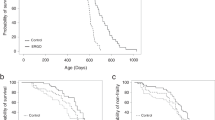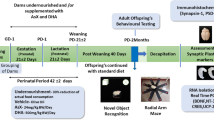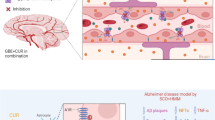Abstract
Increased serum insulin levels and reduced peripheral insulin activities seen in insulin resistance syndrome are associated with age-dependent cognitive impairment and Sporadic Alzheimer’s Disease (SAD), suggesting a disturbance in the insulin signalling system in the brain and possibly being one of the causes of dementia. Therefore, the streptozotocin (STZ)-induced animal may be an appropriate model for the investigation of SAD and related dementia. This study was designed to investigate the beneficial effect of Curcumin (CUR), a neuroprotective agent, on intracerebroventricular (ICV) STZ-induced cognitive impairment in rats. For this purpose, adult male Wistar rats were bilaterally ICV injected with STZ (3 mg/kg). An artificial cerebrospinal fluid (aCSF) was given to the control group (SHAM) instead of STZ on days 1 and 3. Learning and memory performance were assessed using the “passive avoidance task” and the “Morris water maze test”. After confirmation of acquisition impairment with these tests, the STZ group was divided into two subgroups: STZ + vehicle (Vh) and STZ + CUR. The rats in the SHAM and STZ + Vh groups were administered intraperitoneally with 0.5 ml Vh and the rats in the STZ + CUR group were treated intraperitoneally with CUR (300 mg kg−1 day−1 in Vh) for 10 days starting from the 25th day after STZ injection. The Morris water maze test was reapplied on the 35th day after STZ injection and all of the rats were sacrificed on day 36 for quantitation of IGF-1 and for histopathological evaluation. Rats in the STZ + CUR group were found to have a higher performance in cognitive tests than rats in the STZ + Vh group (P < 0.01). In parallel with the cognitive tests, IGF-1 levels were decreased in all of the STZ-injected groups (1.78 ± 0.34) compared to the SHAM group (3.46 ± 0.41). In contrast, CUR treatment significantly increased IGF-1 levels (P < 0.001). The degree of neuronal loss decreased after CUR treatment compared to the SHAM group (P < 0.02). These results clearly indicate that CUR treatment is effective in reducing the cognitive impairment caused by STZ in rats, and may be a potential therapeutic agent for altering neurodegeneration in SAD.





Similar content being viewed by others
References
Ancelin ML, Christen Y, Ritchie K (2007) Is antioxidant therapy a viable alternative for mild cognitive impairment? Examination of the evidence. Dement Geriatr Cogn Disord 24:1–19 doi:10.1159/000102567
Arafa HM (2005) Curcumin attenuates diet-induced hypercholesterolemia in rats. Med Sci Monit 11(1):BR228–BR234
Baum L, Lam CW, Cheung SK et al (2008) Six-month randomized, placebo-controlled, double-blind, pilot clinical trial of curcumin in patients with Alzheimer disease. J Clin Psychopharmacol 28(1):110–113
Begum AN, Jones MR, Lim GP et al (2008) Curcumin structure-function, bioavailability, and efficacy in models of neuroinflammation and Alzheimer’s disease. J Pharmacol Exp Ther 326:196–208 doi:10.1124/jpet.108.137455
Calabrese V, Butterfield DA, Stella AM (2003) Nutritional antioxidants and the heme oxygenase pathway of stress tolerance: novel targets for neuroprotection in Alzheimer’s disease. Ital J Biochem 52(4):177–181
Cole GM, Teter B, Frautschy SA (2007) Neuroprotective effects of Curcumin. Adv Exp Med Biol 595:197–212 doi:10.1007/978-0-387-46401-5_8
de la Monte SM, Wands JR (2005) Review of insulin and insulin-like growth factor expression, signaling, and malfunction in the central nervous system: relevance to Alzheimer’s disease. J Alzheimers Dis 7(1):45–61
De Santi S, de Leon MJ, Rusinek H et al (2001) Hippocampal formation glucose metabolism and volume losses in MCI and AD. Neurobiol Aging 22(4):529–539 doi:10.1016/S0197-4580(01)00230-5
Duvoix A, Blasius R, Delhalle S et al (2005) Chemopreventive and therapeutic effects of curcumin. Cancer Lett 223(2):181–190 doi:10.1016/j.canlet.2004.09.041
Frautschy SA, Hu W, Kim P et al (2001) Phenolic anti-inflammatory antioxidant reversal of Abeta-induced cognitive deficits and neuropathology. Neurobiol Aging 22(6):993–1005 doi:10.1016/S0197-4580(01)00300-1
Ganguli M, Chandra V, Kamboh MI et al (2000) Apolipoprotein E polymorphism and Alzheimer disease: the Indo-US Cross-National Dementia Study. Arch Neurol 57(6):824–830 doi:10.1001/archneur.57.6.824
Gasparini L, Netzer WJ, Greengard P et al (2002) Does insulin dysfunction play a role in Alzheimer’s disease? Trends Pharmacol Sci 23(6):288–293 doi:10.1016/S0165-6147(02)02037-0
Grunblatt E, Salkovic-Petrisic M, Osmanovic J, Riederer P, Hoyer S (2007) Brain insulin system dysfunction in streptozotocin intracerebroventricularly treated rats generates hyperphosphorylated tau protein. J Neurochem 101(3):757–770 doi:10.1111/j.1471-4159.2006.04368.x
Hong M, Lee VM (1997) Insulin and insulin-like growth factor-1 regulate tau phosphorylation in cultured human neurons. J Biol Chem 272(31):19547–19553 doi:10.1074/jbc.272.31.19547
Hoyer S (2004) Causes and consequences of disturbances of cerebral glucose metabolism in sporadic Alzheimer disease: therapeutic implications. Adv Exp Med Biol 541:135–152
Kelloff GJ, Crowell JA, Steele VE et al (2000) Progress in cancer chemoprevention: development of diet-derived chemopreventive agents. J Nutr 130(2S Suppl):467S–471S
Kern W, Peters A, Fruehwald-Schultes B et al (2001) Improving influence of insulin on cognitive functions in humans. Neuroendocrinology 74(4):270–280 doi:10.1159/000054694
Klein WL, Krafft GA, Finch CE (2001) Targeting small Abeta oligomers: the solution to an Alzheimer’s disease conundrum? Trends Neurosci 24(4):219–224 doi:10.1016/S0166-2236(00)01749-5
Lannert H, Hoyer S (1998) Intracerebroventricular administration of streptozotocin causes long-term diminutions in learning and memory abilities and in cerebral energy metabolism in adult rats. Behav Neurosci 112(5):1199–1208 doi:10.1037/0735-7044.112.5.1199
Lester-Coll N, Rivera EJ, Soscia SJ et al (2006) Intracerebral streptozotocin model of type 3 diabetes: relevance to sporadic Alzheimer’s disease. J Alzheimers Dis 9(1):13–33
Li L, Hölscher C (2007) Common pathological processes in Alzheimer disease and type 2 diabetes: a review. Brain Res Rev 56(2):384–402 doi:10.1016/j.brainresrev.2007.09.001
Lim GP, Chu T, Yang F et al (2001) The curry spice curcumin reduces oxidative damage and amyloid pathology in an Alzheimer transgenic mouse. J Neurosci 21(21):8370–8377
Lodha R, Bagga A (2000) Traditional Indian systems of medicine. Ann Acad Med Singap 29(1):37–41
Morris R (1984) Developments of a water-maze procedure for studying spatial learning in the rat. J Neurosci Methods 11(1):47–60 doi:10.1016/0165-0270(84)90007-4
Olgun A, Kisa O, Yildiran ST, Tezcan S, Akman S, Erbil MK (2004) Antimicrobial efficacy of l-carnitine. Ann Microbiol 54(1):95–101
Park CR, Seeley RJ, Craft S et al (2000) Intracerebroventricular insulin enhances memory in a passive-avoidance task. Physiol Behav 68(4):509–514 doi:10.1016/S0031-9384(99)00220-6
Paxinos G, Watson C (1998) The rat brain in stereotaxiccoordinates. Academic, San Diego
Pei JJ, Grundke-Iqbal I, Iqbal K et al (1998) Accumulation of cyclin-dependent kinase 5 (cdk5) in neurons with early stages of Alzheimer’s disease neurofibrillary degeneration. Brain Res 797(2):267–277 doi:10.1016/S0006-8993(98)00296-0
Rivera EJ, Goldin A, Fulmer N et al (2005) Insulin and insulin-like growth factor expression and function deteriorate with progression of Alzheimer’s disease: link to brain reductions in acetylcholine. J Alzheimers Dis 8(3):247–268
Ruby AJ, Kuttan G, Babu KD et al (1995) Anti-tumor and antioxidant activity of natural curcuminoids. Cancer Lett 94(1):79–83 doi:10.1016/0304-3835(95)03827-J
Salkovic-Petrisic M, Hoyer S (2007) Central insulin resistance as a trigger for sporadic Alzheimer-like pathology: an experimental approach. J Neural Transm Suppl 72:217–233 doi:10.1007/978-3-211-73574-9_28
Schubert M, Brazil DP, Burks DJ et al (2003) Insulin receptor substrate-2 deficiency impairs brain growth and promotes tau phosphorylation. J Neurosci 23(18):7084–7092
Schubert M, Gautam D, Surjo D et al (2004) Role of neuronal insuline resistance in neurodegenerative diseases. Proc Natl Acad Sci USA 101:3100–3105 doi:10.1073/pnas.0308724101
Sharma M, Gupta YK (2002) Chronic treatment with trans resveratrol prevents intracerebroventricular streptozotocin induced cognitive impairment and oxidative stress in rats. Life Sci 71(21):2489–2498 doi:10.1016/S0024-3205(02)02083-0
Sharma RA, Gescher AJ, Steward WP (2005) Curcumin: the story so far. Eur J Cancer 41(13):1955–1968 doi:10.1016/j.ejca.2005.05.009
Shishodia S, Sethi G, Aggarwal BB (2005) Curcumin: getting back to the roots. Ann N Y Acad Sci 1056:206–217 doi:10.1196/annals.1352.010
Suh HW, Kang S, Kwon KS (2007) Curcumin attenuates glutamate-induced HT22 cell death by suppressing MAP kinase signaling. Mol Cell Biochem 298(1–2):187–194 doi:10.1007/s11010-006-9365-6
Sumanont Y, Murakami Y, Tohda M et al (2006) Prevention of kainic acid-induced changes in nitric oxide level and neuronal cell damage in the rat hippocampus by manganese complexes of curcumin and diacetylcurcumin. Life Sci 78(16):1884–1891 doi:10.1016/j.lfs.2005.08.028
Szabados T, Dul C, Majtényi K et al (2004) A chronic Alzheimer’s model evoked by mitochondrial poison sodium azide for pharmacological investigations. Behav Brain Res 154(1):31–40
Thiyagarajan M, Sharma SS (2004) Neuroprotective effect of curcumin in middle cerebral artery occlusion induced focal cerebral ischemia in rats. Life Sci 74(8):969–985 doi:10.1016/j.lfs.2003.06.042
West MJ, Slomianka L, Gundersen HJ (1991) Unbiased stereological estimation of the total number of neurons in the subdivisions of the rat hippocampus using the optical fractionator. Anat Rec 231(4):482–497 doi:10.1002/ar.1092310411
Wu A, Ying Z, Gomez-Pinilla F (2006) Dietary curcumin counteracts the outcome of traumatic brain injury on oxidative stress, synaptic plasticity, and cognition. Exp Neurol 197(2):309–317 doi:10.1016/j.expneurol.2005.09.004
Yang F, Lim GP, Begum AN et al (2005) Curcumin inhibits formation of amyloid β oligomers and fibrils, binds plaques, and reduces amyloid in vivo. J Biol Chem 280(7):5892–5901 doi:10.1074/jbc.M404751200
Author information
Authors and Affiliations
Corresponding author
About this article
Cite this article
Isik, A.T., Celik, T., Ulusoy, G. et al. Curcumin ameliorates impaired insulin/IGF signalling and memory deficit in a streptozotocin-treated rat model. AGE 31, 39–49 (2009). https://doi.org/10.1007/s11357-008-9078-8
Received:
Accepted:
Published:
Issue Date:
DOI: https://doi.org/10.1007/s11357-008-9078-8




